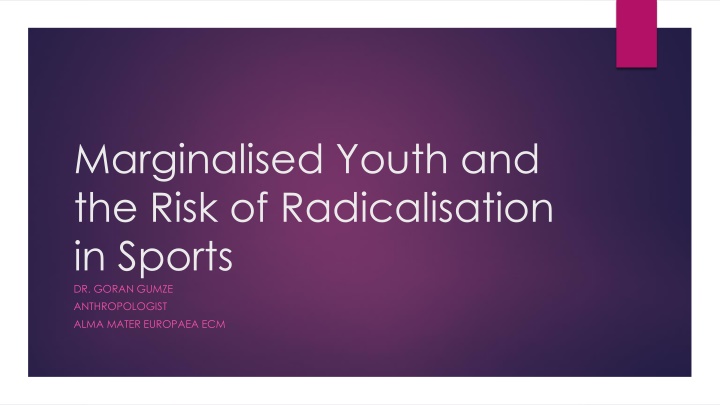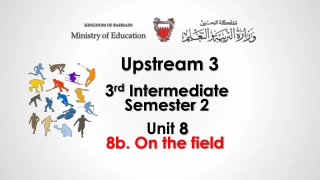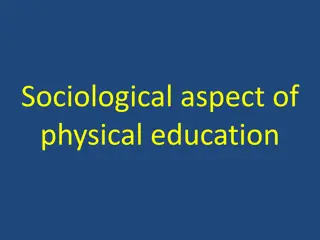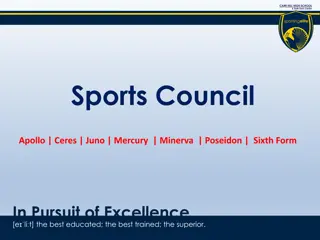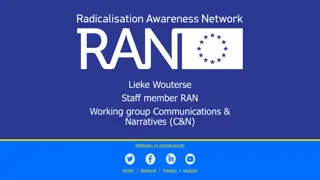Radicalisation of Marginalised Youth in Sports
Europe faces a significant challenge in combating radicalisation affecting marginalised youth, especially in sports environments. Various factors contribute to youth radicalisation, including personal, social, economic, and political reasons. The sports sector can inadvertently foster radicalisation, but also offers opportunities for prevention through effective intervention strategies and positive role modeling. Awareness and proactive measures are crucial to address this complex issue.
Download Presentation

Please find below an Image/Link to download the presentation.
The content on the website is provided AS IS for your information and personal use only. It may not be sold, licensed, or shared on other websites without obtaining consent from the author.If you encounter any issues during the download, it is possible that the publisher has removed the file from their server.
You are allowed to download the files provided on this website for personal or commercial use, subject to the condition that they are used lawfully. All files are the property of their respective owners.
The content on the website is provided AS IS for your information and personal use only. It may not be sold, licensed, or shared on other websites without obtaining consent from the author.
E N D
Presentation Transcript
Marginalised Youth and the Risk of Radicalisation in Sports DR. GORAN GUMZE ANTHROPOLOGIST ALMA MATER EUROPAEA ECM
Radicalisation in Europe Europe is facing one of the most demanding challenges due to the need to defeat growing radicalization regardless if related to terrorist groups, right wing extreme groups or radical suporting groups of sport clubs. One of the reasons for growing radicalisation is increasing number of marginalised youth (regarding cultural, social or economical status) Youth is more and more targeted by, and sensitive to, radical speeches, ideology and propaganda and exposed to the risk of being actively recruited. Beside institutional prevention and police/intelligence activities, aimed to arrest and sentence them, there is an increasing need to develop effective detection and re- education learning tools and methodologies to prevent radicalisation and to foster social reintegration by providing equal educational and integration opportunities for all youth.
Main reasons for violent radicalization There are multiple personal, social, political, economic or environmental reasons for violent radicalisation of youth: Childhood trauma Social exclusion by peers Personal frustrations Poor economic situation Living conditions Political pressures Anti-establishment revolt Lack of integration and iniciation Identity crisis and false role models
Channels of Radicalisation Direct personal recruitment Internet and social media Peer mouth propaganda Clubs, associations, churches Charismatic recruiters Institutional radicalisation
Radicalisation in sports Sport clubs can be also be suitable environment for violent radicalisation of youth. Youngsters practicing professional sport are radical per se. If radicalisation is pointed toward sport activity and good sport achievements, it is perceived as positive radicalisation. Some youngsters practicing professional sports can deviate from such perception of radicalisation. yet sport can be effective prevention tool and sport teachers and trainers can be role models for youngsters.
Some reasons for violent radicalisation in sports Charismatic teacher that promotes violence Frustration due to bad achievements Peer effect Belonging Mission Release of aggression Initiation and identification
Prevention of radicalisation through sport Sport is also effective tool for prevention of radicalisation and de- radicalisation of youth. Sport as healthy activity Socialisation through sport Teacher as role model Perception of changes through corporal communication Behavioural changes
